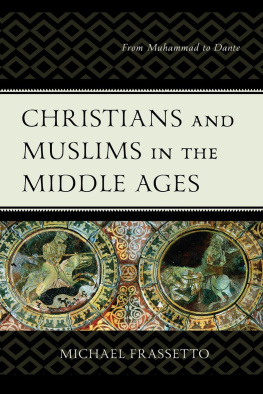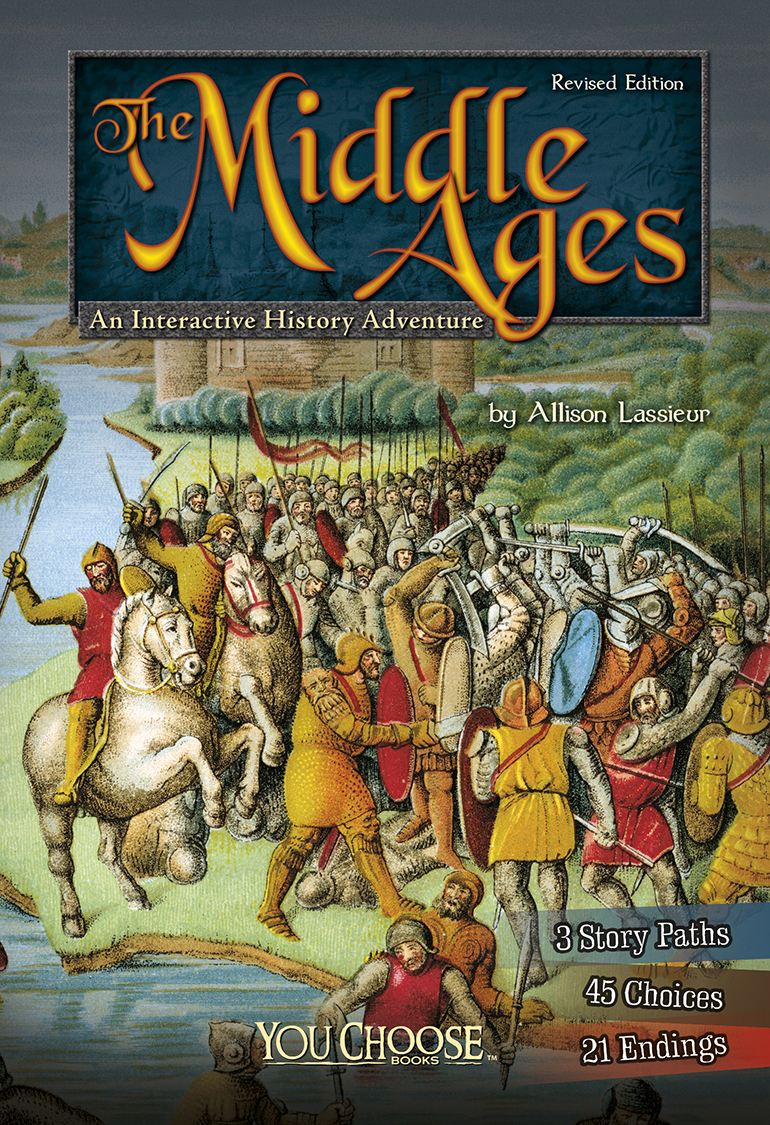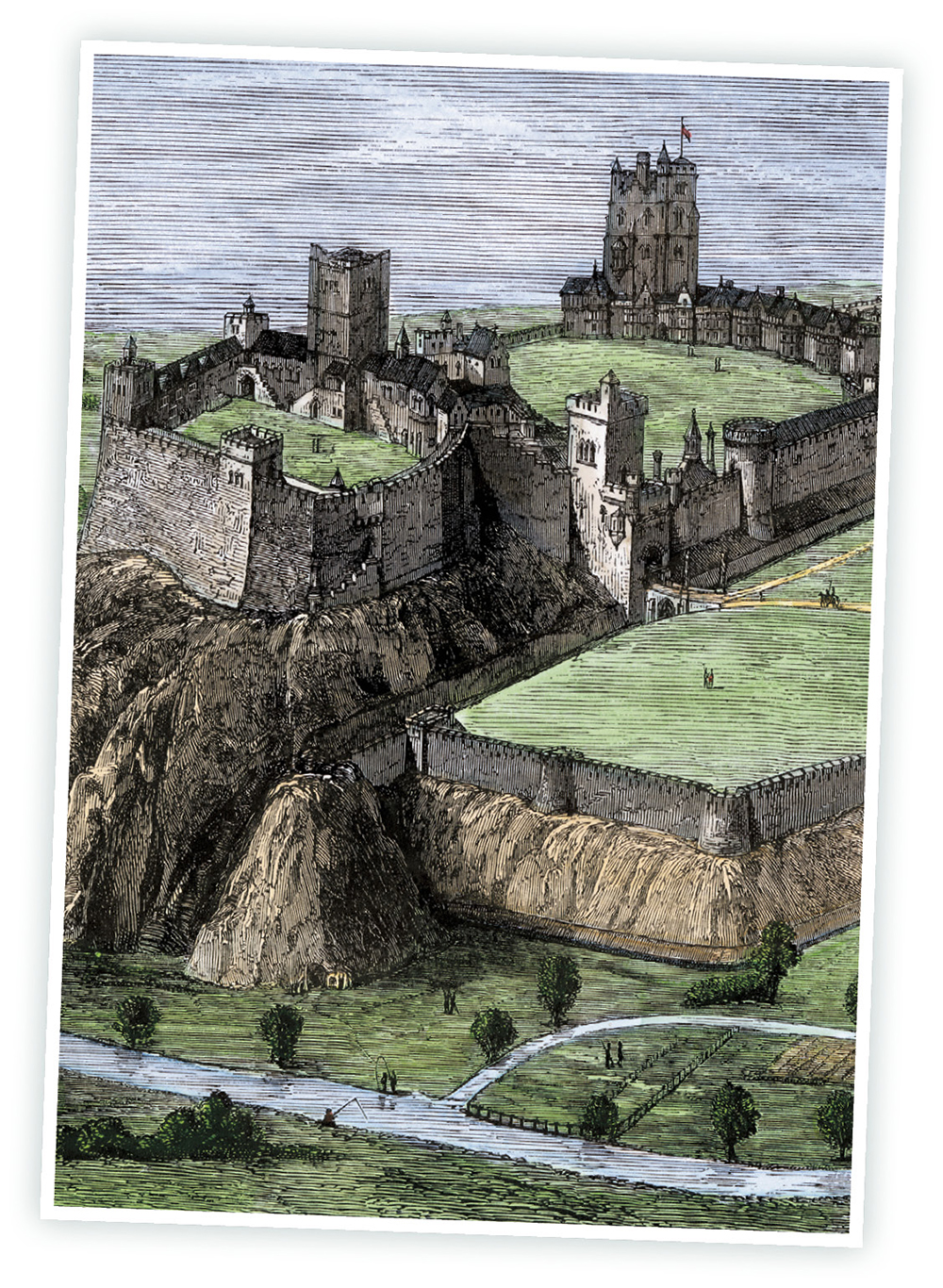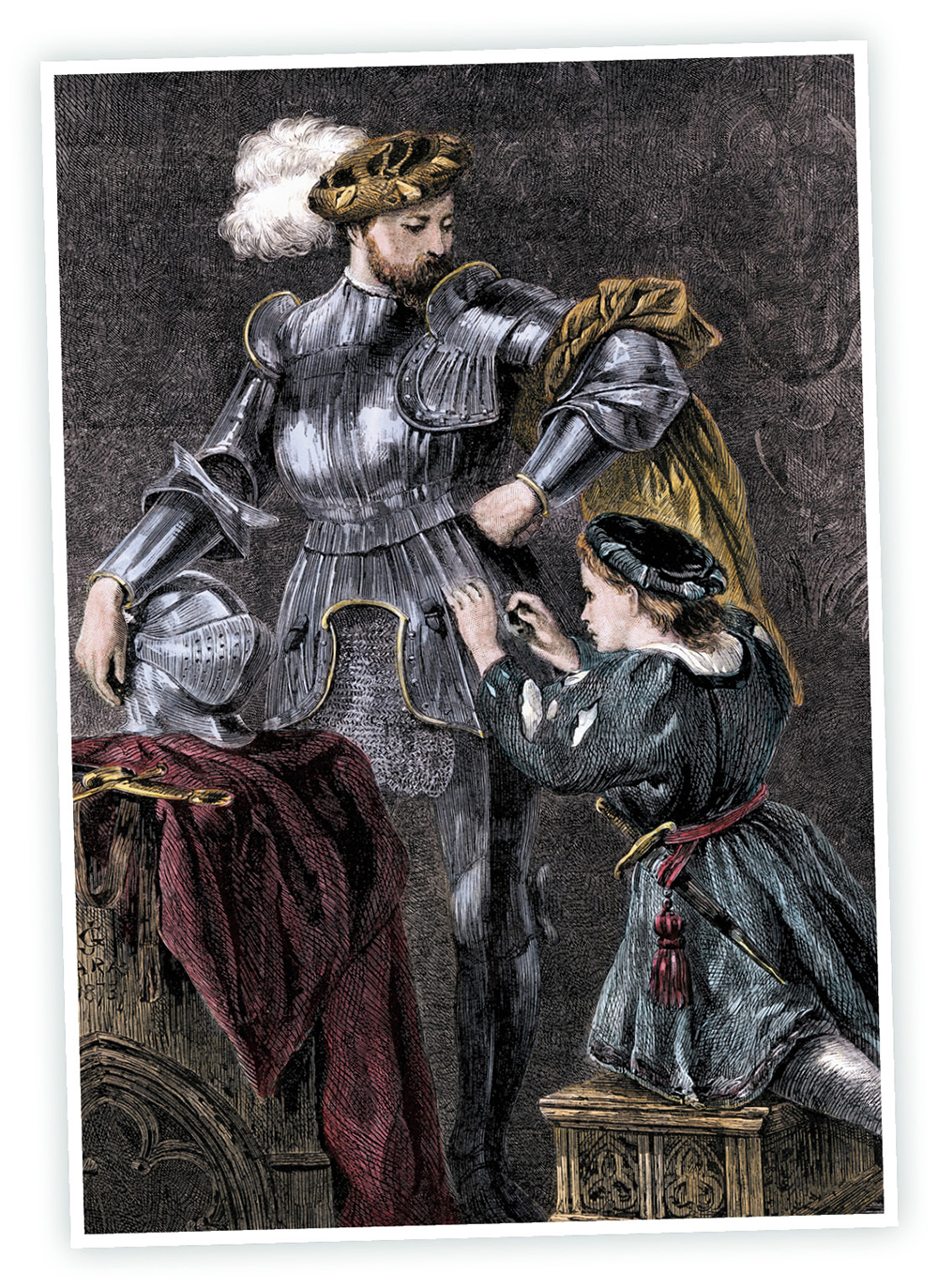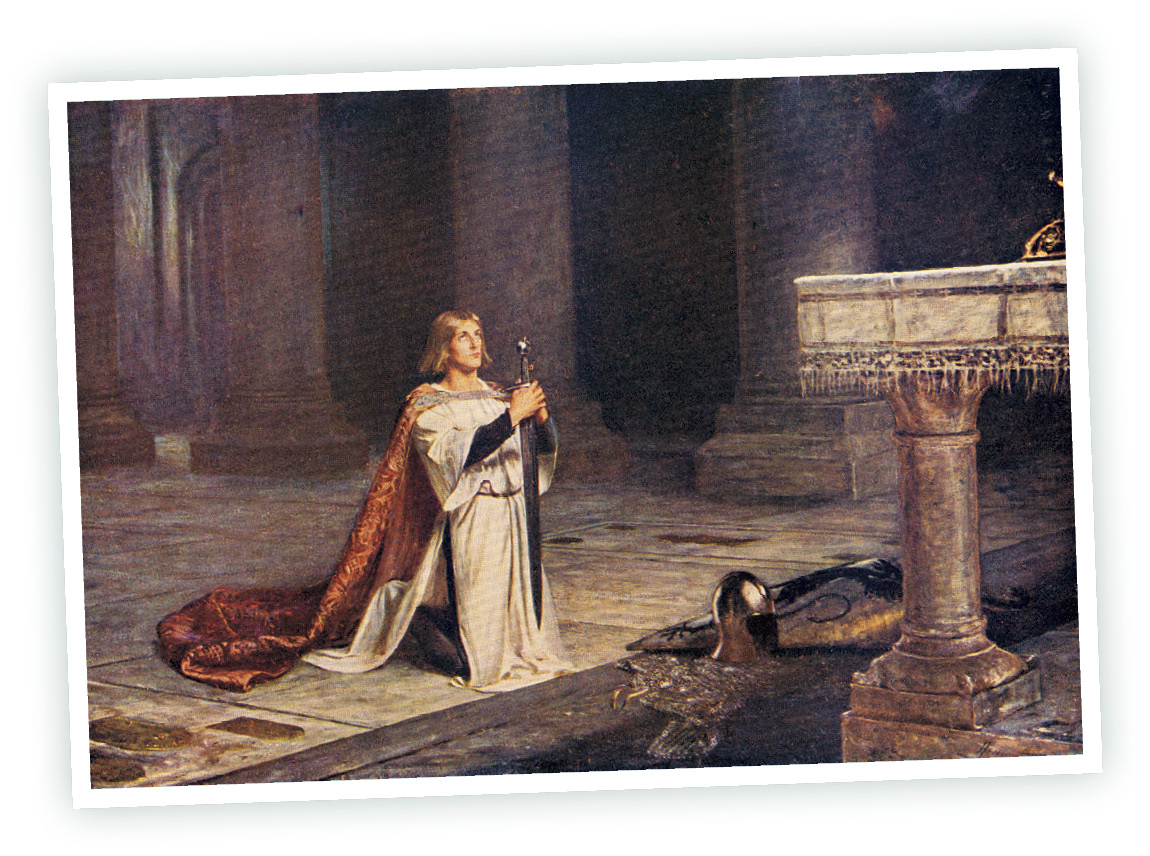For the best You Choose experience,
view in portrait (vertical) orientation.
ABOUT YOUR ADVENTURE
YOU live during the late Middle Ages. War and plague are everywhere. Even everyday life is hard. Will you survive?
In this book, youll explore how the choices people made meant the difference between life and death. The events youll experience happened to real people.
Chapter One sets the scene. Then you choose which path to read. Follow the links at the bottom of each page as you read the stories. The decisions you make will change your outcome. After you finish one path, go back and read the others for new perspectives and more adventures. Use your device's back buttons or page navigation to jump back to your last choice.
YOU CHOOSE the path you take through history.
CHAPTER 1
Castles, War, and Plague
Historians label the years between about 500 and 1500 the Middle Ages. This time is called the Middle Ages because it is between the ancient and the modern periods of history.
Stories about the Middle Ages are filled with excitement and battles. Grand kings and queens ruled their subjects. Knights bravely fought great battles. Castles stood tall on hillsides.
Large castles were built for royalty during the Middle Ages.
Real life in the Middle Ages was not all glory and gold, though. It was a complicated time, just like any other period in history. Some of the kings and queens were cruel. War and disease killed many people.
At that time, the people were basically divided into three orders, or ways of life. There were those who fought, those who prayed, and those who worked. In this society, everyone had a role that served the other orders.
The people who fought included the knights. The knights promised to protect the poor and the weak. Wealthy allowed their knights to use land in exchange for a promise to fight when asked.
The second order was people of religion, such as priests and monks. Their job was to pray for everyone. This was important because most people believed strongly in the reward of heaven and the punishment of hell.
The third order included all the workers. The farmers and the peasants worked the fields and grew food for everyone.
Warfare was a huge part of life in the Middle Ages, and the biggest wars were the Crusades. This series of wars was fought between Christians and Muslims. They were mainly fighting over the city of Jerusalem, located in present-day Israel. Christians believed Jerusalem was the holiest city. Muslims also considered Jerusalem holy to their faith. And the Muslims had lived there for hundreds of years and considered it their home.
The area around Jerusalem was called the Holy Land. Christians believed they should rule the Holy Land. Of course, Muslims did not believe Christians had any right to take their land. For 200 years, thousands of knights and soldiers fought the Crusades. The Christian soldiers hoped to take the Holy Land away from the Muslims.
The Crusades were only one part of life in the Middle Ages. Ordinary people spent most of their lives in small villages or towns on a nobles .
In 1347, a horrifying sickness called the Black Plague began to sweep through Europe. No one knows exactly how many people died. But whole towns lost their populations. People dropped dead in city streets. To the people of the Middle Ages, it seemed like the end of the world.
The Middle Ages lasted for about 1,000 years. Many people lived and died during this time. And they all had very different experiences.
CHAPTER 2
Honor and Chivalry
It is springtime in England in the year 1190. You are an eager young squire to your cousin, a well-known knight named Sir Henry. Six years ago, when you were 12, your parents sent you to live with Sir Henry and his family. You want nothing more than to be a great knight like your cousin.
Every day, you have lessons in sword fighting. You practice horseback riding. You also clean Sir Henrys armor and weapons. When you are not training in the field, you learn to read and write. You memorize the songs and stories that fill the feast hall at night. You attend church services each day, because above all, a knight must love God.
During the Middle Ages, squires helped knights prepare for battle as part of their training.
Now you are 18 years old. One day, Sir Henry summons you to his chambers.
Are you ready to become a knight? he asks.
Yes, you reply, your heart pounding.
You are a worthy squire, says Sir Henry. You shall become a knight.
That evening, Sir Henry and several nobles lead you to a room that holds a large wooden tub. Steam rises from the warm water.
The first part of the knighting ritual is a bath, Sir Henry explains. The bath symbolizes the washing away of your sins.
After your bath, Sir Henry and the nobles take you to the castle chapel. You will stay here all night, praying about the decision youve made, Sir Henry says. You kneel on the hard, cold stone for many hours.
Praying all night in a chapel was often part of the knighting ritual.
At dawn, the men return, and a crowd gathers in the chapel. Sir Henry buckles a new sword around your waist.
Is it your wish to serve God and the land as a knight? he asks in a deep voice. And do you promise to defend all ladies and to always treat them with respect?
Yes, you reply.
Sir Henry steps closer. Now I will dub you. Sir Henry reaches out and slaps your face. From this day forward, let no blow go unanswered, in the name of honor and .
Everyone moves to the great hall, where a delicious feast is waiting.
As you eat, Sir Henry leans toward you. I am going on Crusade, he says.
Crusade! King Richard the Lion-Hearted is about to lead an army to the Holy Land. The Holy Land is controlled by Arab Muslims. Richard, along with the kings of France and Germany, has vowed to take the Holy Land back from the Muslims.
I want to go on Crusade with you, you say excitedly.
You can if you wish, Sir Henry replies. But I also need someone I trust to stay here and protect my lands.
It is an honor that Sir Henry trusts you to protect his lands, so you agree to stay. Each morning, you ride through the castle grounds. In the afternoon, you practice sword fighting. Once a week, the local peasants come to the castle. You settle disputes and give permission for marriages.
One day, a knight appears in the hall. Greetings, my friend Arthur, you say. Then you notice the worried expression on his face. What is the matter?



